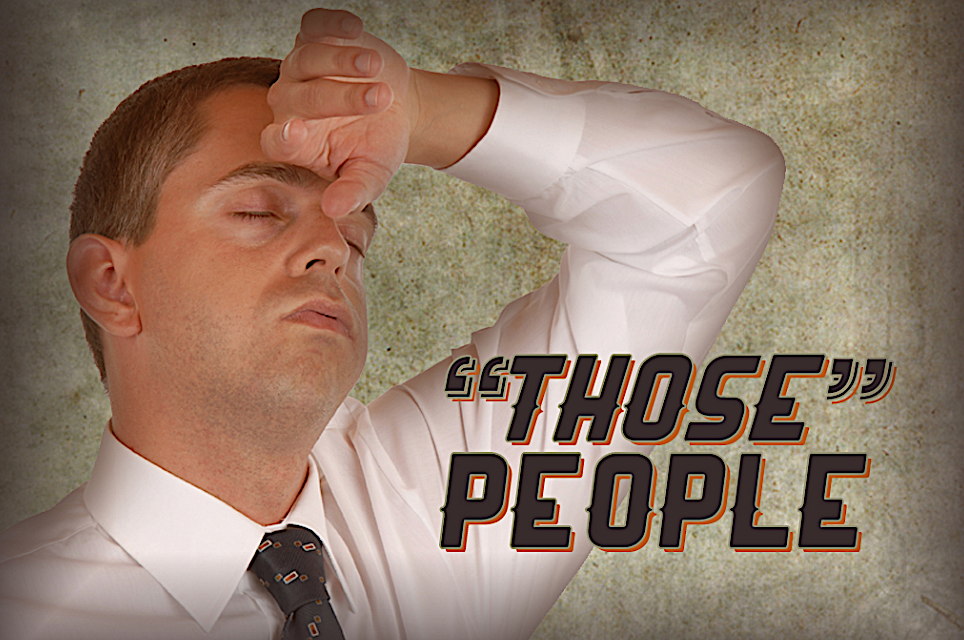
Manipulative people get the better of you frequently by pushing you into your guilt, rage and shame. They do this by complaining, whining, venting or acting sullen all of which is their way of making their problem – and their responsibility – your responsibility to fix and even your fault for either causing it or not doing anything to make it better.
They often get their way because they are successful in causing you to feel guilty. And in so doing, you feel as if you’ve done something wrong and therefore have to accede to their behavior.
Over time it gets much worse for you because there is a cumulative effect from their manipulation that pushes you into resentment, deeper resentment and eventually rage. When you are pushed into your rage and into even a desire to say cruel and mean things back to them, if that goes against who you believe yourself to be, that can then trigger shame. All of this can make their manipulation even more effective as you unconsciously flirt with wanting bad things to happen to them… really bad things.
How do you recognize them? That’s easy. Just a text from them, a voice mail, an email or even the mention of their name, puts a knot into your stomach. (Of course you can also get that reaction because you’re afraid of being held accountable for something that you did or failed to do).
But there is hope if you follow these ten steps:
- When they begin to complain, whine, vent or threaten self-harm, say to yourself: “Okay, here it comes… downshift.” Downshift as in driving a car means centering yourself and grabbing onto the following steps instead of accelerating, picking up speed and either saying that mean/cruel thing to them or just plain avoiding them (only to have it eat away at you inside).
- Look them squarely, but openly in the eyes, in a firm but non-threatening way.
- Let them finish whatever they’re saying. If they’re acting sullen or pouting in front of you, allow that to go on for five seconds (count to five in your head).
- After they finish, keep looking at them in the eyes and pause for three seconds (count to three in your head). This may push them off balance because they’ll be expecting you to jump in and become defensive or tell them to calm down (which means they’ve succeeded in provoking you) and because this time their manipulation didn’t work.
- Then while looking in their eyes say calmly but firmly: “You seem upset. I’m sorry you feel that way. I hope things get better for you soon.” Period, end of sentence and don’t say anything more.
- The more they protest or angry they become at that point – because their ploy didn’t work – the greater the confirmation that they are being manipulative.
- If they start saying angry accusatory things at you, respond with: “I’m sorry that you now seem even more upset. I hope that gets better soon too.”
- If they start threatening to do something that is self-harming, respond with: “I hope you won’t do that and rather than guessing whether you’ll do it or not, I’m calling 911.” And don’t bluff, dial 911. You can always hang up.
- If they start threatening you, respond with: “I can’t let you do that and rather than guessing whether you’ll do it or not, I’m calling 911 to ask for the police.” And don’t bluff, dial 911. You can always hang up.
- When this is over, resist the temptation to think you have done something wrong or to beat up on yourself. You have done nothing wrong and you and I know that your only regret is that it came to this and that you didn’t take this action sooner.
Following this, you might want to make a commitment to stay away from manipulative and high maintenance people who are usually easy to upset and difficult to please and spend more time with low maintenance people who are easy to please and difficult to upset.
As you spend more time with those wonderful low maintenance people, be sure to thank them from time to time for being in your life. One of the worst things you can do is have the high maintenance people in your life cause you to take the low maintenance people for granted.
If you find the above helpful, you might want to check out my book, Talking to Crazy: How to Deal with the Irrational and Impossible People in Your Life or perhaps you’d prefer the Russian edition, How to Talk With A—holes.

